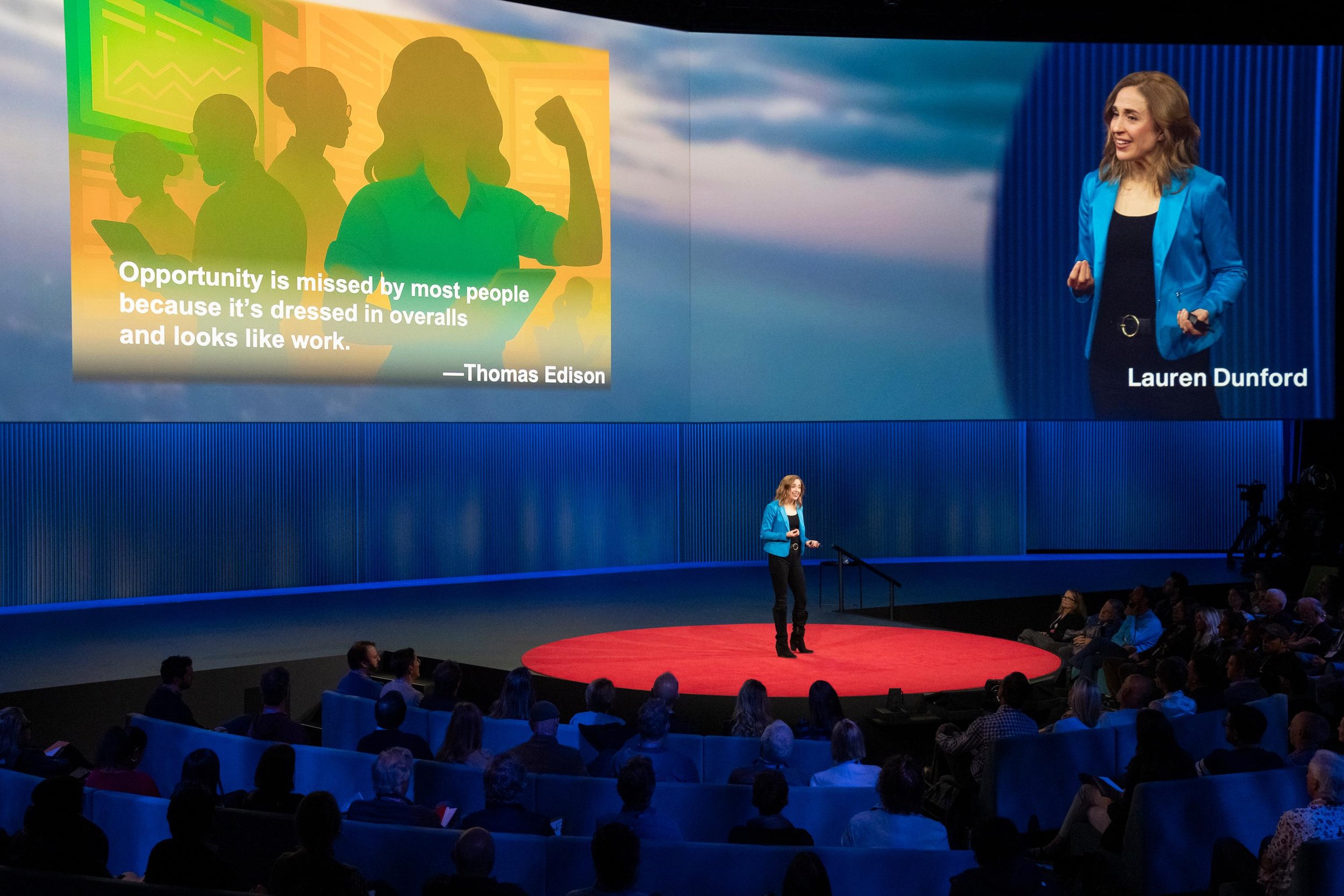TED Talk: Our Future Isn’t Just Coded, It’s Built

Think about the last time you had a conversation about manufacturing.
Not just supply chains or climate impact. But about the people who build what we rely on—the machines, materials, and infrastructure that make our world work.
For most of us, that conversation doesn’t happen. And yet, every part of our lives—from the roads we drive to the phones in our hands—exists because someone made it.
That’s why I chose to center my TED Talk around a simple truth: manufacturing is everywhere, and yet it’s invisible. We don’t see it. We don’t celebrate it. And we don’t give it the attention it deserves.
This matters. Not just because manufacturing accounts for a sixth of global GDP and a third of greenhouse gas emissions—but because it’s the lever that enables everything else. Want to scale AI? You need data centers and the hardware in them. Want to decarbonize? You need to rebuild systems from the ground up. Want resilient communities? You need factories that can flex and respond in crisis.
Manufacturing is where ideas meet reality.
And still, it’s cast aside. Treated as outdated, unglamorous, or someone else’s job. The consequences? A growing talent gap. Solutions that can’t scale. And a world that keeps breaking under pressure because we’ve neglected the foundations.
I’ve spent the last decade visiting factories around the world. And what I see are not relics of the past—but the future, quietly being built. Teams who are hungry for better tools. Machines that could be unlocked with the right visibility. Leaders trying to do more with what they have.
That’s what inspired us at Guidewheel: to build world-class technology that supports these awesome teams, connects their equipment, and brings real-time clarity to improve production today while creating the foundation of real-time intelligence for the future.
It’s also what led us to create a new category: FactoryOps - technology that’s intuitive, AI-first, and built to attract the next generation of talent while driving the productivity and climate impact that local manufacturers need to stay globally competitive.
But this conversation isn’t just about FactoryOps.
It’s about a bigger mission: reframing manufacturing as a place of purpose, innovation, and impact. It’s about honoring the people who make the world work. And it’s about flipping the narrative, so the next generation sees building things not as a fallback, but as a calling.
Because here’s the truth:
If we can’t build, we can’t solve.
If we can’t build, we can’t lead.
If we can’t build, we break.
Let’s change that.
Let’s thank the makers. Let’s spotlight the factories. Let’s build a future that finally gives manufacturing—and the people behind it—the recognition they deserve.
Our future isn’t just coded.
It’s built.

